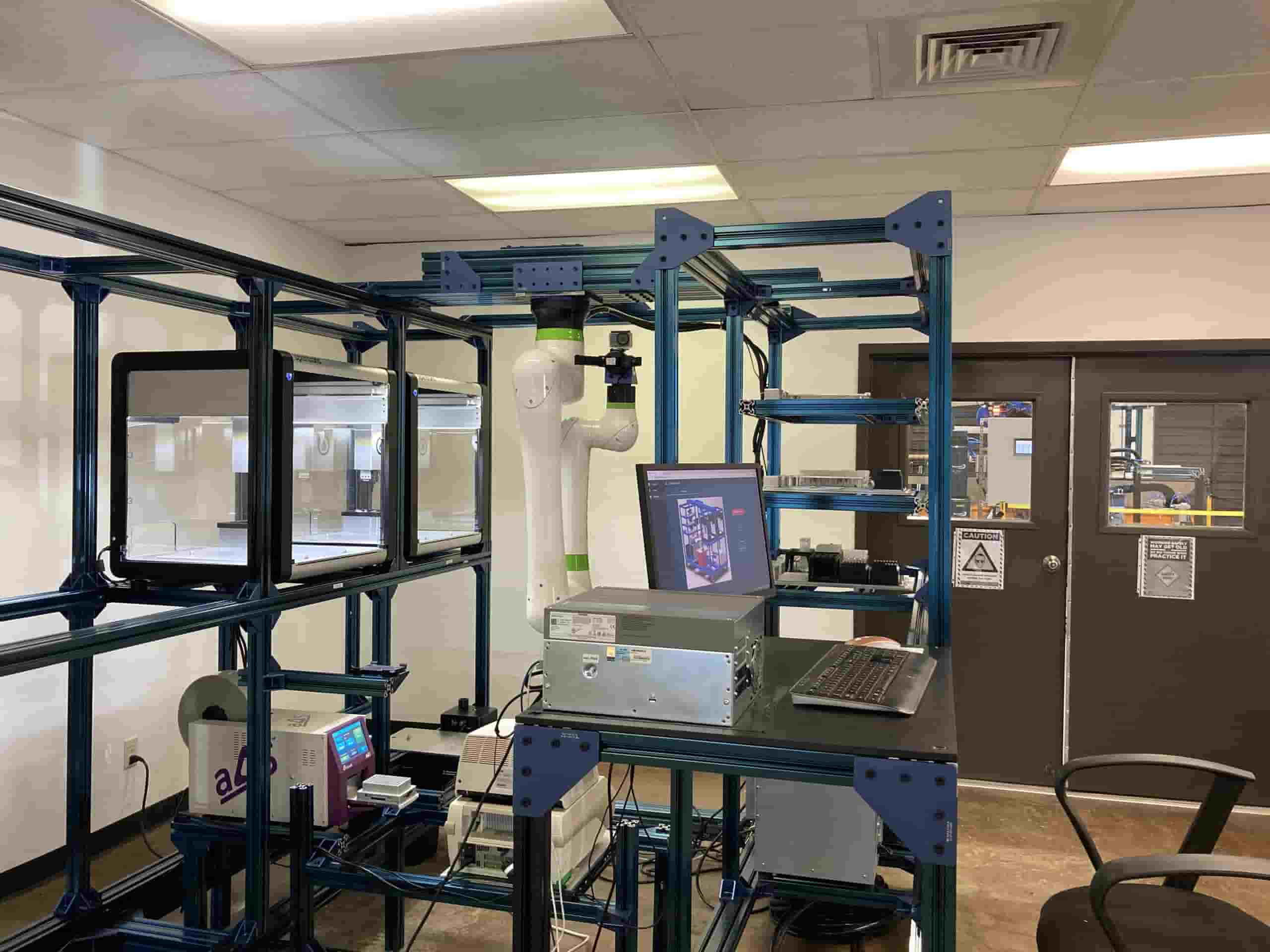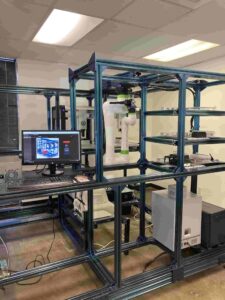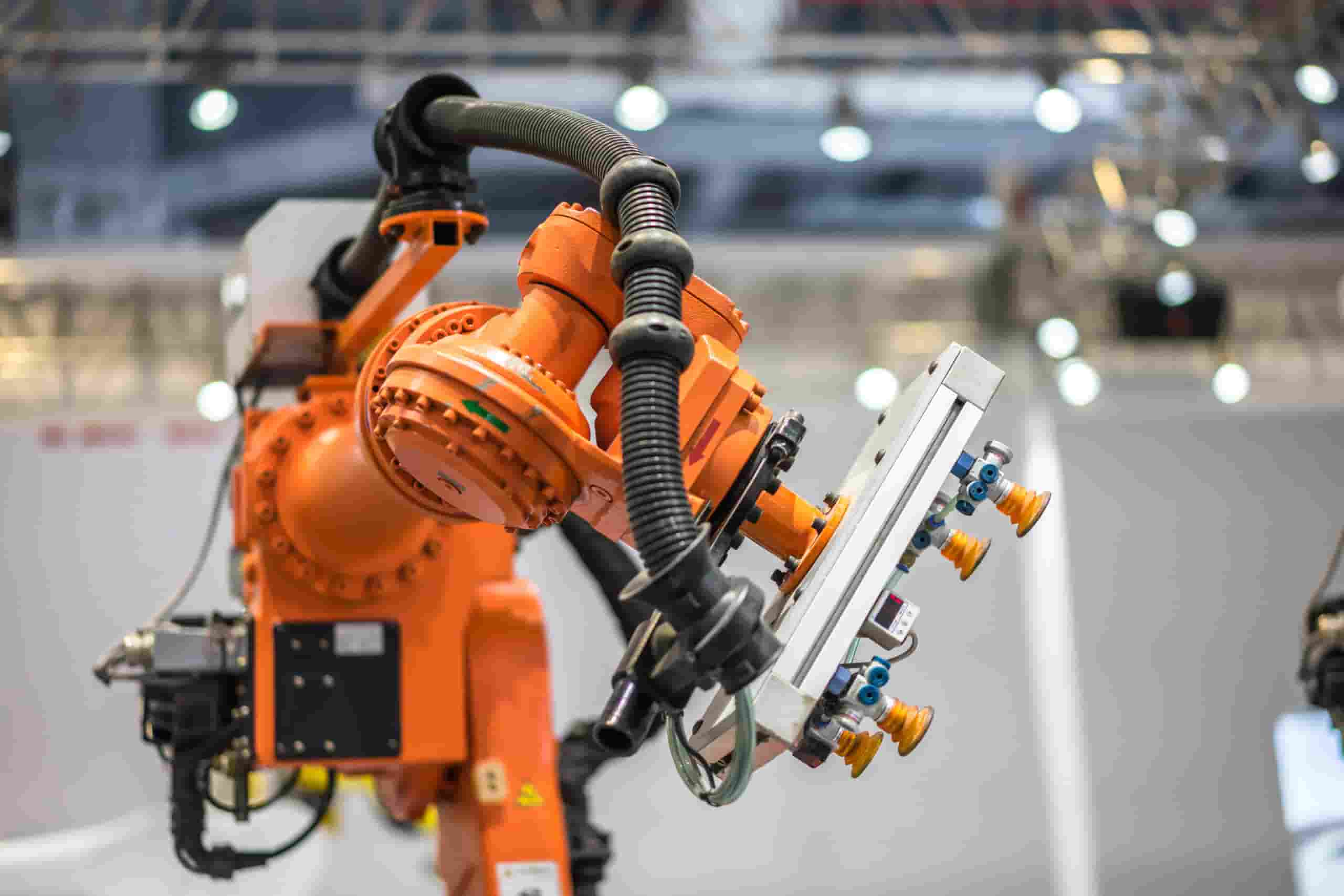
ARM Institute Announces Availability of Robotic COVID-19 Testing Developed by Member Wilder Systems
Robotic system processes polymerase chain reaction (PCR) test samples for COVID-19 with a sevenfold increase in typical laboratory production
PITTSBURGH, PA – (February 11, 2021) – The Advanced Robotics for Manufacturing (ARM) Institute today announced that consortium member Wilder Systems (WS) has created a robotic cell for testing potential COVID-19 samples that is now in production in Austin, TX. The Department of Commerce’s National Institute of Standards and Technology (NIST), through the CARES Act, provided funding to the ARM Institute to collaborate with Wilder Systems to develop this robotics COVID-19 testing technology.
The ARM Institute is leading the way to a future where people and robots work together to respond to the nation’s greatest challenges and to develop and produce the world’s most desired products. One of 16 Manufacturing USA® Institutes across the United States, it is sponsored by the Department of Defense. The Institute operates as a national consortium of almost 300 member organizations who are experts in manufacturing, robotics, and workforce education.
The WS solution addresses one of the biggest challenges in COVID-19 testing: the lack of sufficient personnel to analyze samples and provide test results. Rapid testing for COVID-19 has become vital to mitigating its spread. Throughout 2020, Americans were turned away from testing centers due to limited laboratory capacity to analyze the samples. People who were fortunate enough to be tested at all often had to wait a week or more to learn their results, effectively making them useless. The equipment to complete quantitative identification of nucleic acids from infective organisms exists at most hospitals and universities, but there are not enough technicians to operate at full equipment capacity. By automating this process with robotics, more people will have access to testing and the results of those tests can be made available sooner.
 Credit Wilder Systems[/caption]
Credit Wilder Systems[/caption]
The project team led by ARM Institute member Wilder Systems built a robotic test cell that contains a 7-axis robotic arm, robotic liquid handlers for collection tube plating, polymerase chain reaction (PCR) testing prep, the RT-qPCR analyzer itself, a hazardous waste bin, and control software. A technician starts the testing process by supplying the sample in a test tube, the robotic system then processes it, and the results are quickly delivered. The entire system can be deployed at any lab and has demonstrated its ability to continuously run test samples with minimal human involvement. A typical small lab can run about three cycles a day of 94 samples per eight-hour shift, or 280 tests per day. The Wilder system can run continuously for 24 hours with minimal technician supervision and run up to 2,000 samples per day with the same number of staff and PCR equipment resulting in a 7x increase. Tests performed with the WS system in Austin guarantee results to patients within 24 hours, further augmenting the country’s supply of rapid test results.
“Robots are clearly being recognized as a highly valuable technology for COVID-19 remediation, be it in sanitation, personal protective equipment (PPE) production, or testing,” stated Ira Moskowitz, ARM Institute CEO. “The robotic system developed by Wilder Systems, through ARM’s project funding program, is a critical component to helping the United States manage and mitigate the virus.”
Adds Cara Mazzarini, ARM’s Technology Portfolio Manager responsible for directing the organization’s pandemic-related projects, “This project also accomplished another major milestone in that it was conceptualized, funded, developed, and delivered in less than five (5) months.”
“The team did a tremendous job in executing the mission to rapidly test for Covid-19 with robotics, and at such a breakneck pace,” states Wilder Systems CEO Will Wilder. “Working alongside ARM was pivotal, and we are thrilled to now be taking our innovations to market both here in Texas and across the country during this important juncture.”
More information and a demonstration of the technology can be found at https://wsrobots.com/. Organizations and individuals in the Austin, TX area interested in COVID-19 testing can sign-up at the website. Inquiries about the technology for labs are welcome.
Press Inquiries: Photos of the completed project can be downloaded here. Photos should be credited to Wilder Systems. Email [email protected] for interview requests.
ABOUT THE ARM INSTITUTE
The Advanced Robotics for Manufacturing (ARM) Institute accelerates the development and adoption of robotics technologies that are the foundation of every advanced manufacturing activity today and in the future. We leverage a unique, robust, and diverse ecosystem of partners across industry, academia, and government to make robotics, autonomy and artificial intelligence more accessible to U.S. manufacturers large and small, train and empower the manufacturing workforce, strengthen our economy and global competitiveness, and elevate our national security and resilience. Founded in 2017 in Pittsburgh, PA by Carnegie Mellon University and operating as an independent public-private partnership sponsored by the Department of Defense, ARM is part of the Manufacturing USA® network. Learn more at www.arminstitute.org.
ABOUT WILDER SYSTEMS
Wilder Systems is an industrial services company that specializes in robotic automation for aerospace manufacturing and maintenance. WS delivers complex processes using a Robots as a Service (RaaS) model which enables customers to adopt technology quickly without the challenge of capital expenditure. Learn more at www.wsrobots.com.
